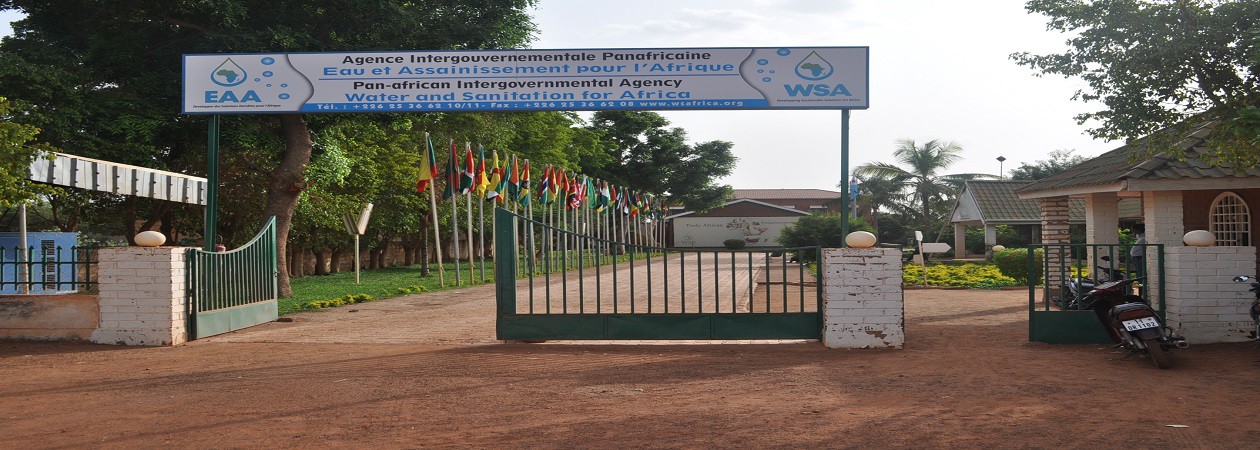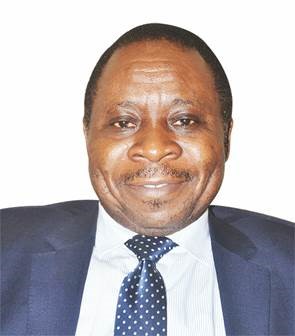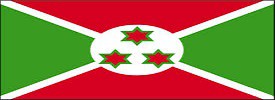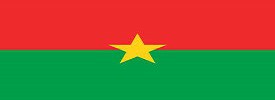ACTIVITIES REPORT
Fourth quarter of 2019
|
Presented by the WSA Executive Secretariat |
December 2019 |
Introduction
The last quarter of 2019 marked the effective launch of on-demand training bringing together sector actors to discuss current developments. Lessons learned from this first edition have sufficiently enriched the training catalog planned for 2020.
On a quite different front, a major breakthrough has been made in resource mobilization actions given the volume of funding applications and the importance of calls for interest and calls for projects responded to.
The latest version of reform documents taking into account the Agency observations has been officially submitted by the Cabinet Africa Consult & Performances firm.
Upcoming actions include advocacy for all member States to take ownership and participate in the next Council of Ministers.
This report consolidates achievements covering the period from October 01, 2019 to December 31, 2019 on the agency relaunch in connection with 2020 challenges, a turning point year for the Pan-African Agency future.
- Research-action for the development and promotion of technological innovations
The overall situation of research in the different countries is as follows :
1.1. Cote d’Ivoire
Research is continuing on the following two themes:
- Innovative and sustainable method of combating Swollen Shoot disease at low cost: strong involvement of farmers in carrying out the experimental phase.
- Energy recovery of effluents from attiéké factories and support for its sustainable conservation: on going of various studies along with the documentary review and the research protocol development
1.2. Central African Republic (CAR)
- Addressing the issue of sewage sludge management in the 1st district of the city of Bangui: continue mentoring of a Master's student on the issue of sewage sludge management
- Dissemination of two innovations in the WASH sector: prototype of a handwashing device designed by the country office; and educational cards games on hygiene in school environment easily adaptable to the community environment
1.3. Sénégal
A Thesis project and a budgeted work plan on the following theme have been submitted to WSA approval : ̏Search for the best combination of organic materials available in rural areas to improve the performance of biogas production from Pour-flush toilets; and the optimization of the quantity of water used in bio-digesters; as well as the comparison of the quality of agricultural fertilizers after biomethanisation ”.
Research shall start as soon as the Memorandum of Understanding is signed between stakeholders.
2.Implementation of Projects and Programmes
Significant changes have been observed in populations behavior when dealing with hygiene and sanitation issues. This is felt both at home and in crowded public places such as markets, schools and health centers. In Togo and Senegal, as in many other countries, the number of villages celebrating the end of open defecation (ODF) and those enrolled in the programme is increasing. Based on these very encouraging results, some projects on this theme have been scaled up and others that came to an end have had their deadline extended for a new phase.
In addition, new financing has been provided during the quarter as in CAR and in many other countries. High-quality dossiers were introduced in response to offered resource mobilization opportunities.
The table below summarizes the update on projects and programmes in member countries.
Country offices portfolio dashboard
|
Country |
Project title |
Financial Partner |
Client |
Period |
Observations |
|
Burkina Faso |
School infrastructures adaptation study for better management of menstruation by girls in school |
To be seeked |
Provinces of Ioba, Kouritenga, Namentenga, Sanmatenga, Bougouriba, and Poni |
2019 |
The validation of the provisional report by Plan International is still expected in order to move on to other stages |
|
Social Housing Programme in Bassinko/Ouagadougou |
Burkinabè State |
Population of the Capital City |
2018-2019 |
Follow up on GERBATP and ECNAF commitments for the reimbursement of sums due |
|
|
Cameroon |
Contract-programme |
State of Cameroon |
National Territory |
2017-2021 |
Pending the Minister of Water and Energy authorization to relaunch the programme |
|
The Female Leadership Support Project for the Management of Infrastructures and Sustainable Water Supply, Sanitation and Hygiene Services (PALFISD-WASH) |
Canada Fund for Local Initiatives (FCIL) |
Women Associations |
Under negotiation |
A 15 427 000 FCFA value Project |
|
|
Congo |
CLTS and promotion of good practices in Lékoumou |
UNICEF |
Department of Lékoumou |
6 months from July 2018 |
Signing of an additional contract of 35 496 831 FCFA for the improvement of latrines for at least 400 households in the target area. The General Directorate of Hydraulics will provide materials to build sanplats and WSA will bare craftsmen-masons labor |
|
Building of ecological latrines Project |
Breweries of Congo |
Brazzaville Primary Schools |
Under negotiation |
Heineken Africa Foundation funding still expected |
|
|
ECOSAN latrine construction and social engineering Project in Mossaka |
Mossaka Malewu |
Mossaka locality |
Under negotiation |
On going negotiation |
|
|
Extension in Peripheral areas and strengthening of the Drinking Water Service in Brazzaville Project (PEPS) |
AFD (French Development Agency) |
Ministry of Energy and Hydraulics |
|
- Raising awareness on good practices in hygiene, sanitation and erosion control, as well as the benefits of public drinking water service - Of the 11 deliverables/outputs planned for 2019, nine (09) were realised, namely:
|
|
|
IEC and popularization of handwashing devices in schools in La Cuvette Department Project |
African Oil Group Corporation(AOGC) |
Department of La Cuvette |
Under negotiation |
Awaiting financing from AOGC |
|
|
Hygiene and Sanitation Project in the Department of Plateaux |
UNICEF |
Department of Plateaux |
Under negotiation |
UNICEF funding still pending to start construction of sanitation facilities for DRC refugees |
|
|
Cote d’Ivoire |
Latrines building in schools and ODF villages Programme (PLEV-FDAL) |
Social Programme of the government |
Department of Rural Sanitation (DAR) of the Ministry of Sanitation and Safety |
2019 |
16 triggered villages are monitored for the construction of latrines by households to achieve ODF |
|
Energy recovery from effluents from attiéké factories and support for its sustainable conservation |
FIRCA (Interprofessional Fund for Agricultural Research and Council) |
Agricultural Cooperative Company "YEBO-EKON" (Commune of Daloa) |
2019-2021 |
- Feeding of the biodigester and flammability test of the biogas produced - Participation in the Project Management Unit (PMU) meetings to which participate WSA- Côte d'Ivoire, UJLoG and "YEBO-EKON" the project beneficiary - Development of modules for the second capacity building session for women producers - Visit of a FIRCA delegation as part of the project monitoring on October 09, 2019 |
|
|
Marketing of treatment products and promotion of new professions (Care International) |
AfDB |
Cities of Bouaké and Katiola |
Under negotiation |
Offer resubmitted and awaiting decision |
|
|
Updating of studies, monitoring and control of construction works for 14 sewage sludge treatment plants |
National Office of Sanitation and Drainage (ONAD) |
12 Cities |
Under negotiation |
Submission of technical and financial offers in December 2019 in partnership with the CONCEPT Design Office |
|
|
Niger |
Resilience and economic growth in the Sahel - Strengthening Resilience (USAID/REGIS-ER) |
USAID |
Regions of Maradi, Tillabéry and Zinder |
2019-2020 |
Continued monitoring of access to drinking water, basic sanitation infrastructure and transfer of responsibilities to the Communes Water component - In collaboration with town halls and GTCs(citizen working groups), identification of villages for the rehabilitation of 6 Hand pumps for 2019/2020 as part of the cost extension for 2 boreholes per commune - Support to municipalities for the development of limited CAD by municipality for the rehabilitation of boreholes - Support for the management of drilling contracts in Niger: monitoring of attachments and statements of lots - Periodic monitoring of the water quality of 10 boreholes in the region of Zinder : results of physico-chemical analysis of samples show that boreholes water quality is always good for human consumption. Bacteriological results not yet available - Periodic monitoring of the water quality of 28 boreholes (out of 30 requested) from Tillabéry North and South. According to the results received in December 2019, waters remain of good physicochemical quality. In terms of bacteriological quality, eleven (11) show the presence of total coliforms mainly in the area of Filingué (09). Management committees for concerned boreholes will be called upon via local development committees and the GTCs, to reinforce the protective measures around the works and raise user awareness to resolve this matter. In addition, a disinfection mission will be recommended as soon as possible. - Final acceptance of 18 water points including 10 in the Zinder region and 8 in the Tillaberi region - Monitoring of commitments made by the entrepreneur for the finalization of water points - Participation in site meetings Sanitation Component - In Tillabéry South, the village of Kouboutché, assessed for ODF, showed signs of manifest regression with the return of human faeces. Following the various appeals from local development structures, the village has thus regained its ODF aspect - In Tillabéry Nord, 34 latrines were built and fenced for proper use in 3 villages Transfer of responsibility and support to local Institutions - Support for updating the action plan of the citizen working group (GTC): taking into account the monitoring the rehabilitation of water points in the action plan - Coaching of GTC members: technical support of the GTC in the preparation of summary reports based on simplified data collecting sheets filled by local development committees |
|
CAR |
Construction of 30 manual boreholes in ODF Villages Project |
UNICEF |
Prefecture of Mbomou |
2019-2020 |
A project to build 30 manual boreholes in ODF villages was concluded with Unicef for an amount of 106,513,289 FCFA of which 94,532,000 FCFA in cash and 9,701,289 FCFA in supply with WSA's contribution worth of 2,280,000 FCFA. Four boreholes were drilled in 2019. Other remaining activities will continue in 2020 |
|
CLTS Project in Lobaye |
UNICEF |
Lobaye |
2019 |
- 47 villages out of the 50 triggered have reached the end of open defecation. Missions of certification and celebration will be held during the first quarter of 2020 - Beginning of awareness campaigns in the old ODF villages certified past years |
|
|
IEC for the construction of 50 boreholes from the PSEPA |
AFDB |
Bangui + 4 Préefectures |
2018-2019 |
After an amendment without financial effect extending the mission duration to the end of November 2019, this project was closed with satisfaction. The final report has been written and filed with the coordination |
|
|
IEC for the multinational CAR/DRC interconnection project from the Boali 1 hydroelectric system (PMIRE) |
AFDB |
Prefecture of Ombella M’poko in CAR and the province of Equateur/DRC |
2019-2020 |
After signing the contract for a total amount of 72 723 375 FCFA, the project activities have started since November 2019 |
|
|
Capacity building project for young drillers and well drillers in construction technology for water and sanitation works |
UNICEF |
Youth and drillers |
2020 |
Funding recently granted an amount of 40 204 545 FCFA of which 1 675 045 FCFA in supply |
|
|
IEC for the RWSSI/PSEPA Project |
AFDB |
3 Prefectures of the CAR |
On going negotiation |
Offer submitted for building 66 boreholes |
|
|
Project to take care of the Water, hygiene and sanitation component in prisons, police stations and gendarmerie |
UNICEF |
Prisons and police stations |
On going negotiation |
Project Under negotiation |
|
|
CLTS Project in 2 prefectures |
UNICEF |
2 prefectures |
On going negotiation |
Project Under negotiation |
|
|
Sénégal |
Project for the Sustainable Improvement of the Health and Socioeconomic Conditions of the People in Rural Areas (PADSER) |
European Union |
Region of Sédhiou |
2017-2019 |
Signature of an amendment for a period of 7 months - 1,716 latrines built to date, i.e. 85.8% - 142 latrines are under construction - 72 requests to acquire recorded works - 22 out of 20 agronomic trial plots were set up including corn, peanuts, onions and eggplant using sanitation byproducts (urine, digestate). Out of season crops are started with nurseries now ready to be transplanted - Capacity buiding of 150 producers in the processes of plots preparation, cultural practices respectful of the environment and the agronomic methods using sanitation by-products, and the comparative analysis between the use of biofertilizers and chemical fertilizers - Elaboration of the script for the institutional film and project capitalization |
Project to improve Access to Water and Sanitation in the regions of Tambacounda, Sédhiou and Kolda (PEPAM) |
European Union |
Regions of Tambacounda, Sédhiou and Kolda |
2019 |
- Production of 123 public toilets (EP) representing 100% throughout the Sédhiou area - 6 out of 12 rehabilitated drinkers and 6 out of 12 rehabilitated gallows in the Tambacounda / Kolda area - In addition, 05 iron removal stations have been set up - Regular coordination meetings of stakeholders involved in PEPAM-EU in the frame of project monitoring-evaluation and capitalization |
|
|
Chad |
Contract programme |
State of Chad |
National territory |
2017-2021 |
The disbursement of the State counterpart linked to the collective budget still expected |
|
Support for ecological, self-sufficient, sustainable family farming adapted to climate change in peri-urban areas by the introduction of organic fertilizers |
AFD |
N’djamena peri urban area |
Under negotiation |
Call for proposals submitted jointly with OXFAM. Concept note approved and drafting of the full proposal in progress |
|
|
Togo |
Togo Urban Development Project-Phase 2 (PAUT 2) |
European Union, AFD |
Ministry of water and village hydraulics |
2016-2019 |
- As part of the documentary film on the project, a prospecting mission was carried out and a synopsis submitted for validation - A balance sheet catalog has been designed and submitted for validation by the contracting authority - Awareness messages in the media are submitted to the line ministry for approval |
|
Notsè-Phase 2 (PEAN 2) Water and Sanitation Project |
European Union |
City of Lomé |
2018 |
- Intensification of awareness campaign on hygiene and sanitation in neighborhoods, churches, schools and markets -Continuation of hygiene and sanitation awareness spots in the media for behavior change |
|
|
Regional program of multi-purpose hydraulic installations for achieving food security |
UEMOA |
Communauty of Nagbéni |
2018 |
Significant changes have beeen observed as bad behaviors such as open defecation, drinking unsafe water, non-washing of hands and food, and unclean environment are less and less noticeable |
3.Capacity building of actors
It is the most intensely developed activity in almost all countries. WSA always excels by the quality of its expertise in the coordination of consultation frameworks and workshops as well as in the development and monitoring of State policies and strategies.
Better still, tailor-made training organized by the Head-office has attracted participants from Ministries, Cooperatives and Municipalities to discuss the sector evolution and acquire new concepts.
The overall capacity building report is as follows:
Burkina Faso
- Review of the « La Nuit de l'Assainissement « held in the Boucle du Mouhoun and discussions on the strategy for implementing the commitments: participation in these discussions organized by the Ministry of Water and Sanitation with a view to increase the level of awareness and involvement of populations and leaders of the Boucle du Mouhoun region in the promotion of hygiene and sanitation.
A subscription for the construction of at least 5,238 latrines for the benefit of households has been recorded
- Financial support for the commemoration of World Toilet Day organized by the Ministry of Water and Sanitation
- Participation in the ordinary session of the Ministerial Sector Board of Directors (CASEM) of the Ministry of Water and Sanitation.
The overall assessment reveals a low rate of the various programs due, among other things, to delays in implementation, suspension of contracts for default of actors, insufficient national counterpart, failure to take into account the environmental aspect especially insecurity
-In the field of drinking water, efforts made by the State and its partners made it possible to increase the access rate from 71% in 2015 to 74% in 2018, a variation of 3 percentage points.
-In terms of sanitation, the access rate rose from 19% in 2015 to 22.6% in 2018, a change of 3.6 percentage points
Cameroon
Participation in a training of trainers workshop on managing menstrual hygiene in the humanitarian response in the WASH prism
All WASH Cameroon key players including UNICEF, UN-Women and the Ministry of Water and Energy took part in the workshop
Congo
Involvement in the development of national policies and strategies in the water, hygiene and sanitation sector
Cote d’Ivoire
- Participation in Technical Monitoring Committee meetings for the review of the CLTS Manual of procedure. The development of this manual was commissioned in 2015 by the Department of Rural Sanitation of the Ministry of Sanitation and Cleansing
- Participation in the sectoral consultation workshop organized by UNICEF on October 29, 2019 and November 12, 2019 for the definition of the strategic orientations of the cooperation program between Côte d'Ivoire and UNICEF covering the period 2021-2025
CAR
- A capacity-building session on integrated water resources management for journalists provided by WSA in collaboration with the national water partnership, a member of the GWP of which WSA is part. More than 20 journalists have been enabled on the topic
- Participation in technical meetings relating to water and sanitation issues, in particular meetings on the development of a new water and sanitation policy framework whose country office is a member of the technical steering committee. We also note the participation in the various reviews of the WASH sector
- WSA is part of the working group of the water and sanitation sector for the recovery plan for peacebuilding in CAR (RCPCA) which is a flagship document of the 2017 - 2021 government program
Sénégal
- Support of local communities in the identification and management of water and sanitation issues through a municipal exchange framework with the actors. To date 06 municipalities out of the 07 targeted (Bambali, Diaroumé, Koussy, Diacounda, Bogal and Faoune) benefited from this support
- Support for the establishment and operationalization of the WASH regional platform which led to the development of a three-year action plan and a decree from the Governor formalizing the creation of this coordination platform to federate all sector interventions at regional level.
4.Organizational performance
With the Agency credibility gradually restored and its visibility increased on the setor, WSA is asserting itself both on the diplomatic level and on the WASH sector leadership. Its operational base is growing every day in light of the volume of portfolios and the various consultations.
This institutional performance will be further strengthened with the strategic guidelines proposed by the organizational audit.
4.1. The organizational audit
The final document has been officially transmitted to the Agency by the Africa Consult & Performances firm.
High quality work done, results of the organizational audit will completely revolutionize the Agency once adopted and effectively implemented.
All the ingredients of an organization with exceptional performance are proposed to meet current issues and challenges on the one hand, and to provide sustainable answers to hygiene, sanitation and drinking water issues everywhere in Africa on the other hand.
4.3. Call for expressions of interest
The increase in the volume of files submitted and the quality of offers during the quarter are sufficient proof of the Agency strength of proposal and the comparative advantages it embodies in the selection processes.
In the meantime, substantial resources have been mobilized by the countries and contracts signed to implement high-quality projects on the field.
4.4. Mobilization of partnerships and States
The combination of diplomacy and political support continues to bear fruit. Added to this are productive discussions with technical and financial partners to develop synergies of actions in resource mobilization and field operations. As a result, numerous tenders were submitted by country offices, alone or in consortium, and new financing contracts signed.
Likewise, member-states financial support as a sustainable funding source for the institution operation has gone to great lengths.
5.Perspectives
Following results shall be expected for the first quarter of 2020 :
- Publishing of the on-demand and tailor-made training catalog
- Adoption of the work plan
- Increased emphasis on advocacy actions towards the State and TFP
- Submission of proposals to calls for expressions of interest and calls for projects
- Meeting of Experts
- Holding of the Council of Ministers
6.Conclusion
Gradually and surely, WSA is asserting its presence on the field and gaining ground. Its long-awaited leadership in the WASH sector is taking shape as its operational base and portfolios are consolidating day by day.
At the top of the list are CAR, Congo and Senegal with higher volumes of operations. Other countries will follow most of whose funding will come to an end but with a high probability of renewal and extension.
Finally, the number of service offers submitted and the quality of the proposals, most of which are in the final stages of the selection process, suggest an even brighter future.
Countries that have not been unable to launch new programs and have a lower level of operations will be prioritized for a close support and more sustained assistance for full operation in 2020.
Niches exist and more promising initiatives have been identified and shall be scaled up. Which is the case of the use of sanitation by-products in Senegal which continue to be emulated as everywhere else.
Indeed, the recovery of hygienic excreta in agriculture is an opportunity for resource mobilization widely sought by many technical partners. WSA will focus on it seriously in 2020.
The intensification of applied research on emerging themes, the training of actors and the supervision of students will remain the Agency priorities for the years to come.
To that, one must add the organization of the Council of Ministers in 2020, which must decide on the reforms proposed by the organizational and institutional audit. The first quarter of the new year will be devoted primarily to the preparation and holding of this governance forum. The future of the institution depends very much on it.
Already, the achievement of nearly 80% of the 2019 results is reason enough for satisfaction and encouragement to continue actions and the diplomatic offensive. Most efforts of the management will be devoted to this end.







